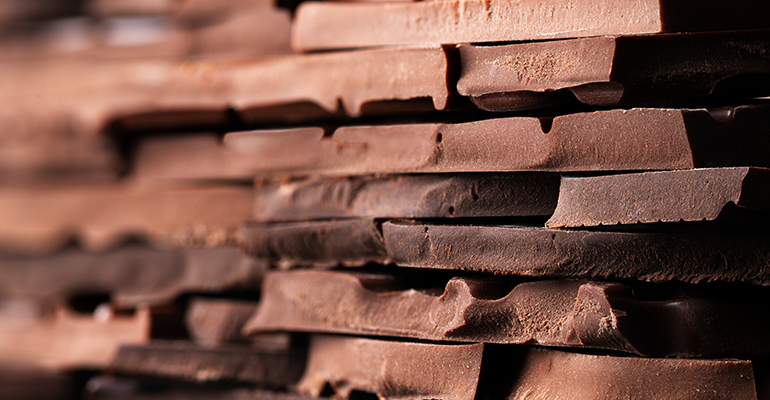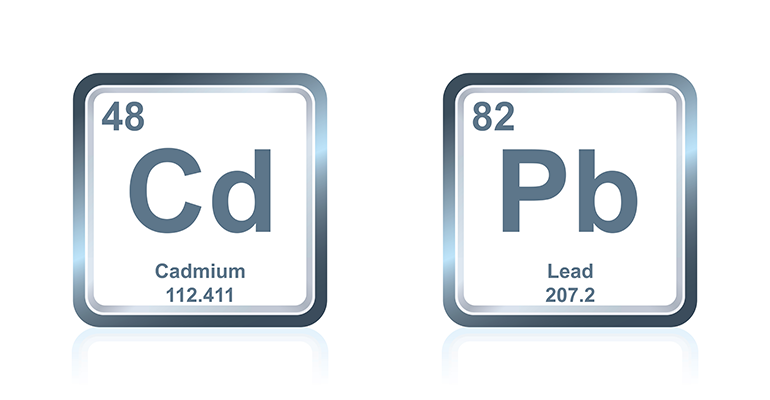News
Candy manufacturers pressured on heavy metals found in chocolate
2 Feb 2023
Consumer Reports recently tested 28 different dark chocolate bars in the US and detected “concerning levels” of cadmium and lead in all of them, two heavy metals linked to a variety of health problems.
Consumer Reports, an independent, non-profit consumer organisation, is now urging chocolate manufacturers to commit to reducing the amounts of the metals by Valentine's Day. The Consumer Reports findings were first published in December 2022, and detailed the dangers of high levels of heavy metals in food.

Consistent exposure to cadmium and lead are most problematic for children and pregnant people because they can cause developmental problems.
“But there are risks for people of any age,” said Tunde Akinleye, the Consumer Reports food safety researcher who led the testing project. “Frequent exposure to lead in adults, for example, can lead to nervous system problems, hypertension, immune system suppression, kidney damage, and reproductive issues.”
Lindt, Dove, Godiva, Hershey’s, and Trader Joe’s had higher levels
Even though most of the chocolate bars tested had “concerning levels” of lead and cadmium, Akinleye said, five of them were relatively low in both.
“That shows it’s possible for companies to make products with lower amounts of heavy metals —and for consumers to find safer products that they enjoy,” he said.
Of the big-name brands, Ghirardelli had some of the lowest levels of both cadmium and lead, while Lindt, Dove, Godiva, Hershey’s, and Trader Joe’s all had higher levels of both metals. In the US, there are no federal limits for the amount of lead and cadmium most foods can contain.
Metals in chocolate studied for three years
The presence of lead and cadmium in chocolate is an on-going issue in the candy industry. In August 2022, the National Confectioners Association released the findings of a three-year study on the sources of lead and cadmium in cocoa and chocolate and how to reduce them.
 © AdobeStock/ColinCramm
© AdobeStock/ColinCramm
The research was done as part of a lawsuit settlement. As You Sow, a non-profit focused on corporate social responsibility, sued 32 chocolate manufacturers under California Proposition 65, which requires businesses to provide warnings to Californians about significant exposures to chemicals that cause cancer, birth defects, or other reproductive harm. The suit was settled in 2018 and required the investigative joint study.
“The expert investigation report concludes that cadmium can be found in cocoa and chocolate due to its presence in soils, either through natural or man-made sources, where cocoa is cultivated and harvested in the tropics,” the NCA said.
“Reducing cadmium levels without compromising taste characteristics will require blending low and high cadmium beans in the short-term, and changes to soil composition or cocoa genetics over time.”
The NCA said that based on the findings, it identified and prioritised a list of recommended cadmium and lead reduction measures for the industry to consider. These changes include new handling practices, better soil treatment, and planting new tree stock, which can take years to implement.
Public petition calls out candy brands
The Consumer Reports December 2022 report encouraged more immediate action, however, by calling out the levels of heavy metals in specific chocolate brands.
In response, the NCA released a statement in December. “The California Office of Environmental Health Hazard Assessment (OEHHA) guidelines cited in the Consumer Reports study are not food safety standards. An expert investigation conducted through our prior California Proposition 65 settlement concluded that cadmium and lead are present in cocoa and chocolate due to soil, and that bean cleaning during processing cocoa beans reduces lead and cadmium in chocolate products.”
“The products cited in this study are in compliance with strict quality and safety requirements, and the levels provided to us by Consumer Reports testing are well under the limits established by our settlement,” the NCA said.
Following up on 23 January, Consumer Reports sent letters to the CEOs of Hershey Co., Mondelez International Inc., Theo Chocolate, and Trader Joe's, urging them to make a commitment to reducing levels of heavy metals in their chocolate products.
Consumer Reports asked the brands to make the public commitment by Valentine’s Day, a chocolate-heavy holiday. The letters were also accompanied by a petition with about 55,000 signatures.
“Consumers are troubled that many of their favourite dark chocolate bars contain high levels of heavy metals,” Consumer Reports said in the letters. “Many choose to eat dark chocolate because of its potential health benefits and relatively low levels of sugar. But there’s nothing healthy about ingesting heavy metal.”
